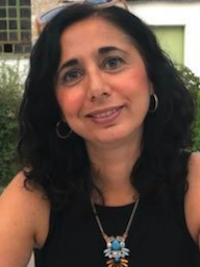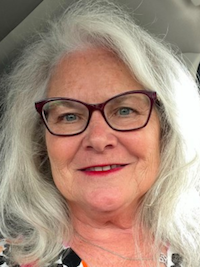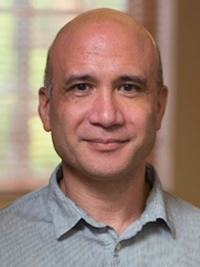Event Recap | Funding Faculty Research - Meet and Greet with Foundation Funders
About the Event
Dimitra Koutsantoni, senior director of university corporate and foundation relations, lead a conversation with Shawn Morehead, vice president for grants at New York Community Trust, and Bruce Western, Bryce Professor of Sociology and Social Justice and Justice Lab director, on foundation missions and funding priorities, decision-making processes, and the ways they develop partnerships with higher education institutions and faculty.
Key Takeaways
- The foundation landscape includes the following:
- Family foundations - those typically started with the assets of a single family. The strategic or institutional priority for those family foundations are set by the family members.
- Private foundations - where assets come from a single source, but the leadership and particularly the Board, are no longer the family members. They often have a single substantive focus or guiding mission.
- Community foundations - is a public charity where donors come from the community. Funds are intended to support a wide range of issues.
- Corporate foundations - make grants often consistent with the corporate function
- Building and stewarding relationships with foundations:
- Foundation program officers usually have academic or policy practitioner backgrounds. They can be thought-partners for your work.
- Have genuine, substantive conversation with program officers by inviting them to talks and events; and sharing papers to advance their learning.
- Participate with foundations and speak on panels in front of foundations so they get to know who you are substantively.
- Use relationships to build new relationships - network can have a magnifying effect.
- Think of building relationships with foundations as part of the academic ecosystem.
- Create relationships with foundations outside of reporting requirements
- Reach out early if issues arise. Do not wait until the deadline for reporting requirements.
- Good proposals:
- Give a sense of the overall issue and how your research is designed to contribute to a solution.
- Answers why does this matter, what problem are you trying to solve, why are you/the university/center well equipped to work on this solution? What analysis have you already done and what are you going to do? Describe (without being vague or using jargon) what you are going to do and what you will accomplish.
- Shorter is usually better. Be succinct and clear since it is the program officer’s job to go to their Board to advocate for you.
- Connect your proposal to specific priority areas of the foundation. Use their language to describe priorities.
- Key differences between federal agency proposals and foundation proposals:
- Foundation proposals should be able to communicate to general audiences versus the scientific community (ie. NSF, NIH)
- Deliverables in foundation proposals might be broader (ie. impact)
- Federal proposals tend to be graded on a rubric versus foundation proposals which tell a story
- How to turn a no to a yes?
- Take rejection as an opportunity to start a conversation about the work and the specifics of the proposal
- Ask for feedback - understand that this is a relative process for foundations. Ask what were the differences between your proposal and those that rose to the top.
- Don’t argue with the program officer. Take the feedback.
- Be persistent.
Speakers

Dimitra Koutsantoni
Dimitra Koutsantoni is Senior Director of University Corporate and Foundation Relations at Columbia University. Dimitra works with Columbia University academic and administrative leaders and faculty to develop and deepen partnerships with foundations and corporations in support of university strategic initiatives, programs, and faculty research. Prior to that, she served as the Director of Research Administration at Columbia University Irving Medical Center where she led the administration and management of the Department of Pediatrics’ portfolio of grants and clinical trials. Dimitra has also held research administration and foundation relations positions in Columbia’s Sponsored Projects Administration and Business School. Before coming to Columbia in 2010, Dimitra headed up research development and knowledge transfer at Bayes Business School (formerly Cass), City University London. A social scientist by training, Dimitra holds a PhD in Sociolinguistics and has published a research monograph, peer reviewed journal articles, and higher education policy papers.

Shawn Morehead
Shawn Morehead is Vice President for Grants at New York Community Trust. Shawn oversees The New York Community Trust’s competitive grantmaking program, which distributes approximately $50 million annually. Prior to this position, she served as The Trust’s program director for Human Justice and Education grantmaking. She received her B.A. from Columbia University and her J.D. from Stanford Law School.

Bruce Western
Bruce Western is Bryce Professor of Sociology and Social Justice and Director of the Justice Lab at Columbia University. He studies poverty and socioeconomic inequality with a focus on the U.S. criminal justice system. Current projects include a randomized experiment assessing the effects of criminal justice fines and fees on misdemeanor defendants in Oklahoma City, and a field study of solitary confinement in Pennsylvania state prisons. Western is also the Principal Investigator of the Square One Project that aims to re-imagine the public policy response to violence under conditions of poverty and racial inequality. He is the Co-Chair of a National Academy of Sciences panel on reducing racial inequality in the U.S. criminal justice system. He is the author of Homeward: Life in the Year After Prison (Russell Sage Foundation, 2018), and Punishment and Inequality in America (Russell Sage Foundation, 2006). He is a member of the National Academy of Sciences, the American Academy of Arts and Sciences, and the American Academy of Political and Social Sciences.